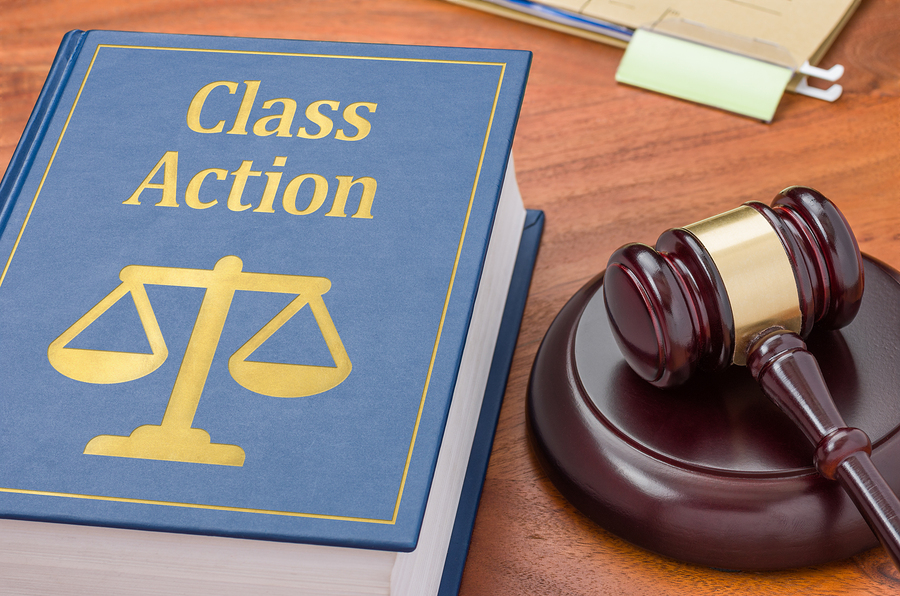We talked earlier in this space about the challenges of sourcing eclipse glasses, how it seemed easy in the beginning to find suppliers of safe glasses, but then everything changed. The tide really turned when the ISO issued this warning: “It now appears that some companies are printing the ISO logo and certification label on fake eclipse glasses and handheld solar viewers made with materials that do not block enough of the sun’s ultraviolet, visible, and infrared radiation to make them truly safe.”
Even the Missouri State Parks department found themselves in the uncomfortable position of having to warn people not to use the glasses they sold them. They couldn’t verify the 25,000 glasses they bought with the name “PMS Promo Mart” on the outside of the product were safe to use.
 Now, not even a month since the eclipse totality passed through South Carolina, the first class action lawsuit against Amazon is in the works. The proposed suit claims that Amazon did “tragically too little, too late” when it came to warning people they had been sold fake glasses by the online retailer. A Charleston couple hopes to represent others that, like them, say they didn’t receive a warning from Amazon about potential danger. In the hours after the eclipse, the couple said they both experienced visual impairment and headaches after they watched the eclipse using the glasses they bought online. They want the tech giant to cover the medical cost of ongoing eye checks for the people affected.
Now, not even a month since the eclipse totality passed through South Carolina, the first class action lawsuit against Amazon is in the works. The proposed suit claims that Amazon did “tragically too little, too late” when it came to warning people they had been sold fake glasses by the online retailer. A Charleston couple hopes to represent others that, like them, say they didn’t receive a warning from Amazon about potential danger. In the hours after the eclipse, the couple said they both experienced visual impairment and headaches after they watched the eclipse using the glasses they bought online. They want the tech giant to cover the medical cost of ongoing eye checks for the people affected.
Amazon has not yet commented on the potential lawsuit. Before the eclipse, it did claim to have emailed customers who bought products where manufacturing was not verifiable to let them know of a recall. It is unclear how many people bought counterfeit glasses and Amazon did not disclose the list of vendors that supply them to the public. The online retailer claimed that specific brands or products couldn’t be named because real solar glasses were possibly listed under the same name.
So, what can you do to protect yourself when your supplier may, or may not, have sold unsafe products? Like so many other situations in the promotional product industry, the answer is document, document, document. If you are named as a party to a lawsuit, you want to be able to demonstrate that you made your best effort to source safe products and, in the event a problem arose, thereafter made every effort to get them back and mitigate consumer risk. But here’s the important thing: Just as with any crisis planning, the only way to successfully navigate a crisis related to a product recall is to plan for one before it happens. If you don’t yet have one, use this as a wake-up call to get your company’s recall plan and a recall policy in place, to protect your company and your reputation, before it happens.
A recall strategy should cut across both companies, supplier and distributor, and should address the implications of a recall for all supply chain and business functions. The strategy should also include development of a timeline dealing with all stages of the recall: Discovery, execution of the recall, and the aftermath. Make sure you have documented policies and a plan in place, not only to use, but to also be able to provide documents that you may need in court. Product development at the supplier level needs to address the reason for the failure, and the steps taken to correct it. Equally as important, product designers should take steps to make every product easier to recall in the first place, if needed. Communications, logistics and information systems from both supplier and distributor should have written plans in place.
The potential consequences of a recall to you, and your company, are clear. Recalls can have a major impact on brand reputation and shatter your clients’ confidence in your company. A recall may result in your company being targeted for regulatory interference. Relationships between supplier, distributor, and client can be disrupted, or end permanently, allowing your most opportunistic competitors to capitalize on your vulnerability. Recalls can cause enough stress to make an otherwise solid organization unstable. So is it worth it, to casually sell a product and make a quick buck? Because you could end up causing damage that costs you several times the margin you made in the first place.
Jeff Jacobs has been an expert in building brands and brand stewardship for 40 years, working in commercial television, Hollywood film and home video, publishing, and promotional brand merchandise. He’s a staunch advocate of consumer product safety and has a deep passion and belief regarding the issues surrounding compliance and corporate social responsibility. He retired as executive director of Quality Certification Alliance, the only non-profit dedicated to helping suppliers provide safe and compliant promotional products. Before that, he was director of brand merchandise for Michelin. You can find him still advising Global 500 Brands on promo product initiatives, working as a volunteer Guardian ad Litem, traveling the world with his lovely wife, or enjoying a cigar at his favorite local cigar shop. Follow Jeff on Twitter, or reach out to him at jacobs.jeffreyp@gmail.com.